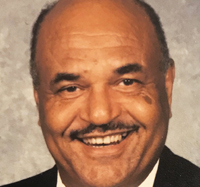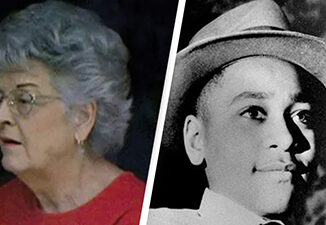

By Lee Eric Smith, The New Tri-State Defender
Thirty years ago, this year, in 1989, my father, Eddie Lee Smith Jr., made history as the first African American elected mayor of my hometown of Holly Springs, Mississippi.
It was a pretty big deal at the time, though when you think about it, it shouldn’t have been. I think most people intrinsically know the color of your skin has nothing to do with your qualifications for the job. It certainly doesn’t measure the impact you leave behind.
My dad died on Jan. 25, 2001, while serving the final months of his final term. That same year, a health fair was named in his honor. A few years later, a street would bear his name. For many years, there was an annual program commemorating the day he was born.
And I still get chills when I walk inside the Eddie L. Smith Multipurpose Building on North Memphis Street. As one of his final projects, he envisioned it as a common ground for the whole town. How often do you literally get to walk around inside your father’s vision?
It says something about the life he lived, that people still want to actively celebrate his life. On the 18th anniversary of his death, my hometown paused for a candlelight vigil, a chance to reflect on the impact he left. As I listened to the stories people told, I realized: Whenever I’m in Holly Springs, I’m always walking around in his vision.
He had a vision that Holly Springs needed a good doctor, preferably African American – not just for health reasons, but so that young people of color could SEE what a career in medicine looks like in the flesh. That’s the pitch he used on Dr. Kenneth Williams, who opened Williams’ Medical Clinic there in the 1990s.
My dad would call on Williams again, this time to prevent the local hospital from closing in the late 1990s. He convinced Williams to purchase the facility, which is now Alliance Healthcare System. No coincidence, Alliance now hosts the Eddie L. Smith Health Fair each May – at the Eddie L. Smith Multipurpose Building.
He also had a vision that Holly Springs should recognize its most famous daughter, Ida B. Wells-Barnett. Though she made her name in Memphis and Chicago, she was born in Holly Springs, where she attended Rust College. When my dad identified the “home house” where she was born, he got the city to acquire the property, then leased it for $1 to what is now the Ida B. Wells Museum.
As mayor, he quickly corrected those who called him a politician. He preferred “elected official” or “statesman;” both of those terms carry a greater sense of service and integrity than “politician.” He remained his own man, turning down political donations if they came with even a hint of strings attached. And his character won him respect from the town’s black and white citizens – even his political adversaries.
“I’m not the Black mayor or the white mayor,” he would say. “I’m the Mayor of Holly Springs.”
There are literally too many stories to put here. He was a school principal, a 27-year college administrator, and a Boy Scout leader. He ran for multiple offices in the post-Jim Crow days, to spur African Americans to register and vote. Many credits his work in bringing the Pre-K education program ICS Headstart to Holly Springs. He served on multiple committees in the local and state United Methodist Church.
Like I said: Too many stories. It’s only a mild exaggeration to say that almost everyone in Holly Springs has an Eddie Lee Smith story. Most of them involve him helping them in some way – helping to launch a business (Annie’s Restaurant, for one); being Scoutmaster to Holly Springs’ first Black Eagle Scout (Donald Street). There’s the one where he settled down a raucous crowd during a Board of Aldermen meeting by reciting Psalm 23.
For me, of course, he was Dad. It was him playing “old man” basketball against me and my 10-year-old friends – backing us down before unleashing that unstoppable hook shot. We had no chance, even two on one. It was the two of us, remodeling bathrooms and kitchens.
But one of my favorite Eddie Lee Smith stories happened about five years ago. I was in line at Subway when Reggie Burke walked in, still wearing his Holly Springs Parks & Recreation uniform. He’s always friendly with me whenever I see him. On this day, I learned why.
“Lee Eric,” he said as we waited in line, “When I finished high school, I didn’t know what I was going to do next. Your daddy said he could get me on at Parks and Rec, at least until I decided what I wanted to do next. That was in 1990. And I’m still here.
“He saw something in me,” Burke said. “I don’t know if I saw it in myself yet. And I’ve been with the city now for more than 20 years. A whole career . . . because of him.”
That’s when he nodded to the employee making my sandwich. “Put his order on mine,” Burke said.
It was a simple gesture with profound implications. After all, who among us wouldn’t want to live the kind of life where people want to repay your kindness by buying your CHILDREN dinner – YEARS after your death? I hope that someday, someone I’ve helped does the same for Victoria and E.J.
As I look at my own life, I can see he set me on the right trajectory. He was a scout leader; I earned Eagle Scout just shy of my 18th birthday. A year after his election, I made history as the first African American editor of The Daily Mississippian, the student newspaper at Ole Miss. As a child, I watched he and my mom care for both of their parents; years later, I was full-time caregiver for my mom.
It reminds me of a poem I wrote a few years after his death – about the weight of filling the shoes of a man who meant so much to so many people. I wrote about that time after he died, when I literally slipped on an old pair off his shoes, only to find out they’re uncomfortable and worn out. The closing lines:
“As I slipped off his shoes, I cried, as I looked down and realized: I do not have to fill my father’s shoes. For I have inherited his feet.”





Be the first to comment